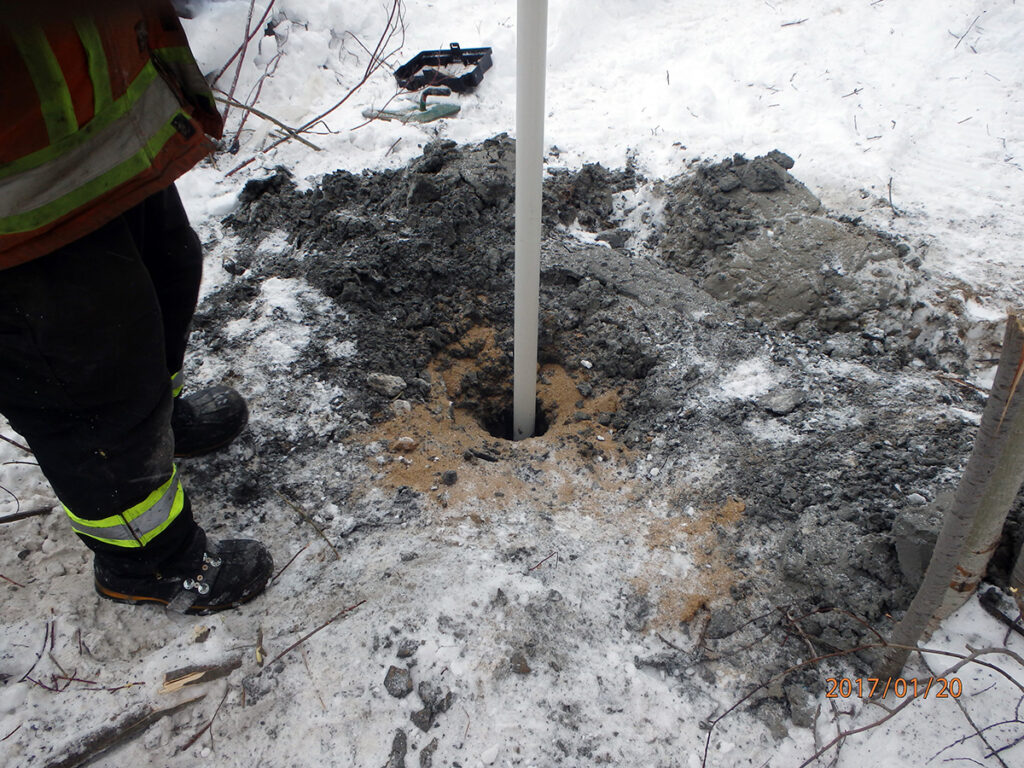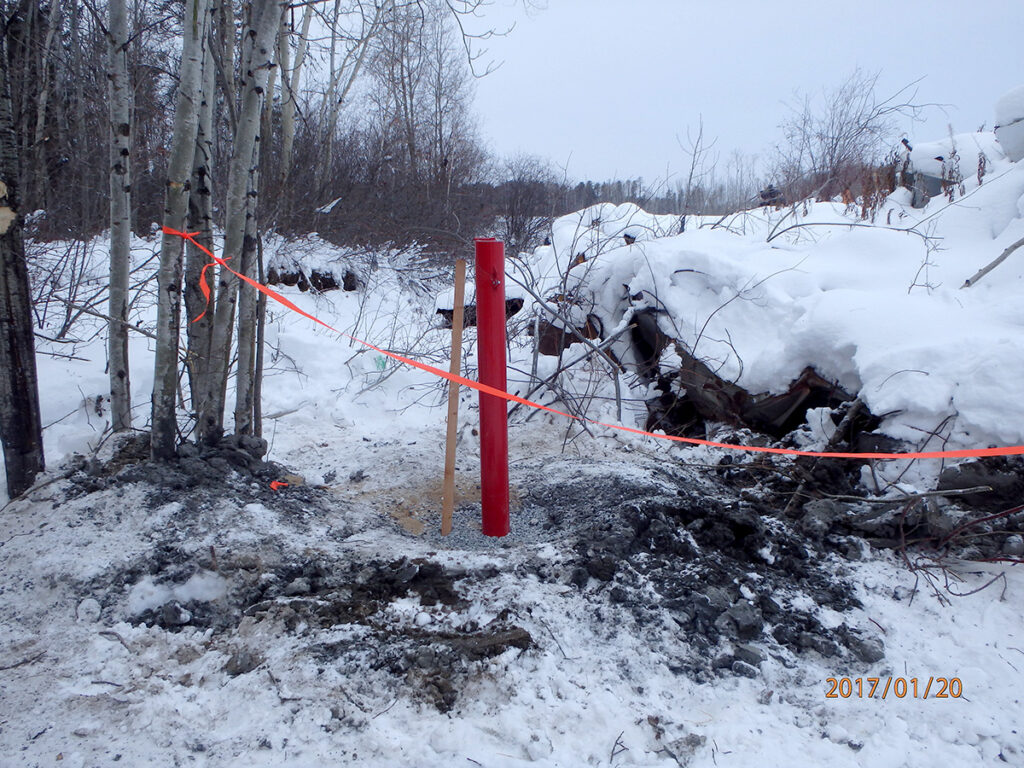Projects
Monitoring Well Installation Plan – NT
Dillon developed a monitoring well installation plan and groundwater sampling plan for sewage and solid wastes sites in Aklavik, Tuktoyaktuk, Wrigley, Fort Simpson, Jean Marie River, and Fort Liard in the Northwest Territories.
Dillon was retained by the Government of Northwest Territories Department of Municipal and Community Affairs (MACA) to install groundwater monitoring wells at active and decommissioned landfill and lagoon sites within the communities of Fort Liard, Fort Simpson, Jean Marie River, Wrigley, Tuktoyaktuk and Aklavik. The objective of the program is to identify and quantify contaminants that may be migrating from these facilities to the surrounding groundwater over the long-term. Contaminants of concern are prioritized to identify the presence of hydrocarbons and/or metals, as well as (but not limited to) polycyclic aromatic hydrocarbons (PAHs), and polychlorinated biphenyls (PCBs). The undertaking is to include drilling of wells and the installation of lockable gates at select facilities to control vehicle access. A training opportunity is also being provided to local community members to learn how to properly collect and ship groundwater samples for analysis. Sampling instruction manuals specific to each community will be developed and provided to community staff and MACA.
Throughout the initial stages of the program, the sampling plan is considered a live document. In collaboration with MACA, the design of the long-term monitoring program is evolving to optimize installations, sampling methods and parameter collection for the assessment of the groundwater/surface water interactions such that the GNWT can ensure the environment remains protected into the future. Building on the results of previous campaigns, some modifications that were included in the sampling plans include:
- Utilizing sampling techniques that are suitable for local communities to implement and collect data that is comparable with samples collected by consultants
- Collect surface water and groundwater from the facilities for comparison of chemical changes in the groundwater environment that may be attributed to the activities at the sites
- Alternative installation options such as drive-point piezometers at remote locations taking into account the local access and local subsurface conditions.
Project Details
Project Partner: Government of Northwest Territories
Business Unit: Contaminated Sites Management
Service Offering: Remediation, Revitalization, and Reclamation

